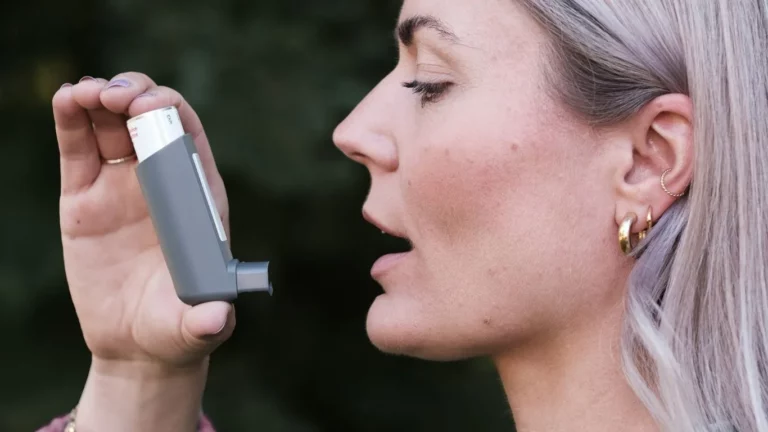Sleeping Tips for GERD Sufferers
Are you tired of waking up in the middle of the night with that burning sensation in your chest? GERD (Gastroesophageal reflux disease) is no joke when it comes to sleep disruption. But don’t worry, we’ve got your back. In this article, we’ll cover the best sleep tips for GERD sufferers, helping you wake up feeling more rested and less plagued by nighttime heartburn.
If you’ve ever dealt with GERD (or acid reflux), you know that trying to get a good night’s sleep can feel like a battle. The discomfort of acid moving up into your esophagus, the burning in your chest, and the constant interruptions during the night can make it seem impossible to get any restful sleep. But here’s the good news: you don’t have to just accept poor sleep as part of the package when dealing with GERD. There are simple changes and tips you can use to significantly improve your sleep, reduce symptoms, and get the rest your body desperately needs. Let’s dive into some strategies that could make all the difference.

Why GERD Affects Your Sleep
Before we get into the practical tips, it’s important to understand why GERD messes with your sleep in the first place. GERD happens when stomach acid moves up into your esophagus, causing discomfort and sometimes pain. This acid reflux is often worse when you’re lying down, which is why people with GERD often find it more difficult to sleep at night. Imagine trying to rest while your stomach acid is actively trying to climb out of your stomach. Not the most relaxing situation, right?
For many people, GERD symptoms tend to flare up at night due to several factors: lying flat on your back, the slower digestion that happens while sleeping, or simply eating too close to bedtime. All of these things can increase the likelihood of reflux, which leads to interrupted sleep. But don’t throw in the towel just yet—by tweaking your bedtime routine and sleep habits, you can help ease GERD symptoms and sleep better.
Sleep Tips That Actually Help with GERD
We’ve put together some simple, real-world tips that can improve your sleep and reduce the discomfort of GERD symptoms. Ready to get started? Here’s what you can do:
1. Sleep with Your Head Elevated
One of the best ways to minimize acid reflux while sleeping is to elevate your upper body. By propping yourself up with pillows or using a wedge pillow, you can reduce the chances of stomach acid moving upward into your esophagus. A general rule of thumb is to aim for about a 30-degree incline, which allows gravity to help keep things in place. You don’t need to go all out with a special adjustable bed, but even just a few extra pillows can make a big difference.

2. Try Sleeping on Your Left Side
Here’s a fun fact: the position you sleep in can have a huge impact on GERD symptoms. Studies show that sleeping on your left side can help reduce acid reflux compared to sleeping on your right side or your back. Why? When you lie on your left side, the stomach is positioned below the esophagus, which makes it harder for acid to flow back up. If you haven’t tried this already, it might be worth a shot!
3. Avoid Eating Right Before Bed
We all love a midnight snack, but eating too close to bedtime can trigger GERD symptoms. When you eat, your stomach produces acid to help with digestion. If you lie down soon after eating, it’s easier for that acid to splash up into the esophagus. Try to avoid large meals at least 2-3 hours before hitting the hay. If you must snack, opt for a small, light snack that’s low in fat and doesn’t irritate your stomach, like a banana or some almonds.

4. Watch Your Beverages
What you drink at night also plays a role in how well you sleep with GERD. Caffeine and alcohol are two big offenders that can relax the lower esophageal sphincter (LES), the muscle that normally keeps acid in your stomach. If the LES relaxes too much, acid can move up into your esophagus more easily. Try to avoid coffee, soda, and alcohol at least a few hours before bedtime. If you’re thirsty, water or herbal tea is a better option.
5. Wear Loose-Fitting Pajamas
Believe it or not, tight clothing can actually make GERD worse. When your clothes are too tight around your stomach, they put pressure on your abdomen and can force stomach acid upward. Opt for loose-fitting pajamas that allow your body to move freely during sleep. This simple change can make you feel more comfortable and help reduce GERD symptoms as you rest.
What to Do If You Wake Up with GERD Symptoms
Sometimes, despite all your best efforts, you may still wake up with that uncomfortable burning sensation in your chest. If this happens, don’t panic. Here are a few things you can try to relieve the discomfort:
1. Stay Upright
If you wake up in the middle of the night with acid reflux, resist the urge to lie back down. Instead, sit up for a few minutes or walk around. This can help gravity move the acid back down into your stomach, providing some relief.
2. Drink a Glass of Water
Drinking water can help dilute stomach acid and wash it back down into your stomach. It’s a quick and easy way to reduce the burning sensation in your chest.
3. Take an Antacid
If you frequently experience GERD symptoms at night, you might want to keep some over-the-counter antacids on hand. While these can provide temporary relief, make sure to consult your doctor if you find yourself relying on them regularly.

Conclusion
Managing GERD doesn’t have to mean sleepless nights filled with discomfort. By adjusting your sleeping position, watching what you eat, and making small changes to your nighttime routine, you can significantly reduce the impact GERD has on your sleep. And while it may take some trial and error to find the best combination of strategies for you, it’s definitely worth the effort for a good night’s rest. Sweet dreams, GERD warriors!
FAQs
- Can I use a regular pillow to elevate my head? Yes, you can use a regular pillow or wedge pillow to elevate your head. Just make sure it’s angled at about 30 degrees to keep acid reflux at bay.
- Is sleeping on my right side worse for GERD? Sleeping on your right side can sometimes trigger GERD symptoms more than sleeping on your left side because it can relax the LES, making acid reflux more likely.
- What are the best foods to eat before bed if I have GERD? If you need a snack before bed, opt for foods like bananas, oatmeal, or a small handful of nuts. Avoid spicy, fatty, or acidic foods.
Related Table: Best and Worst Sleeping Positions for GERD
| Sleeping Position | GERD-Friendly? | Recommendation |
|---|---|---|
| Left Side | Yes | Best position for GERD relief |
| Right Side | Less ideal | Avoid if possible |
| On Your Back (Flat) | No | Not recommended due to risk of reflux |
| On Your Stomach | Depends | Can be uncomfortable for GERD sufferers |
Disclaimer: The information provided in this article is intended for general guidance and should not replace professional medical advice. If you have concerns about managing GERD, it’s important to consult with a healthcare professional for personalized recommendations.

Camellia Wulansari is a dedicated health writer specializing in digestive disorders, contributing valuable insights and information to the health and wellness community. With a passion for promoting well-being through knowledge, Camellia serves as a reliable source of expert content on healthusias.com.






